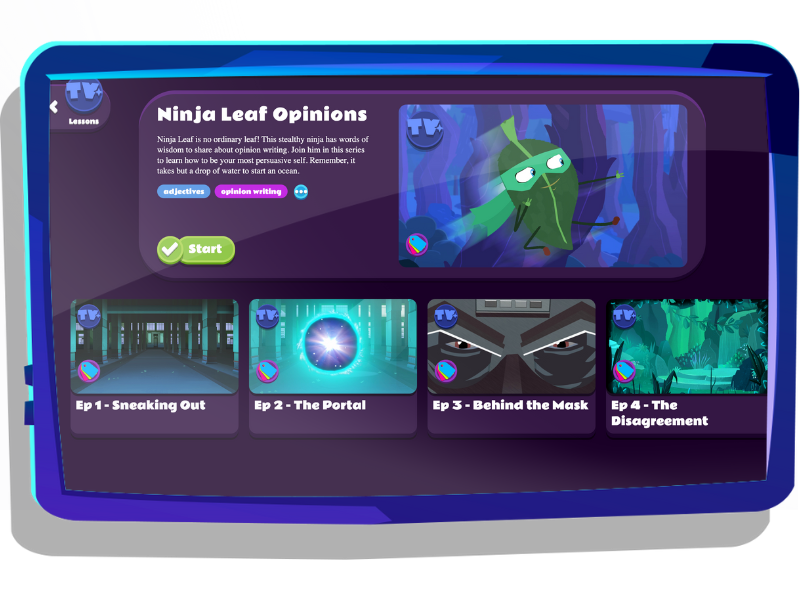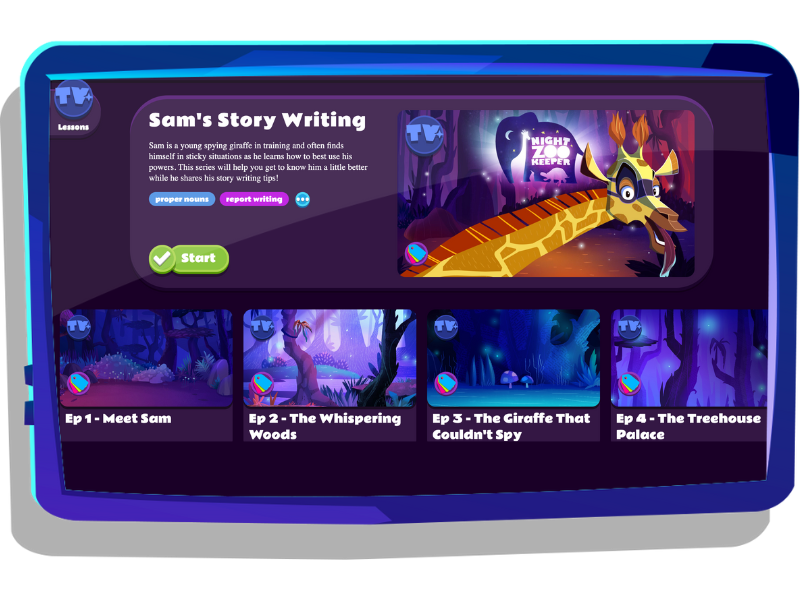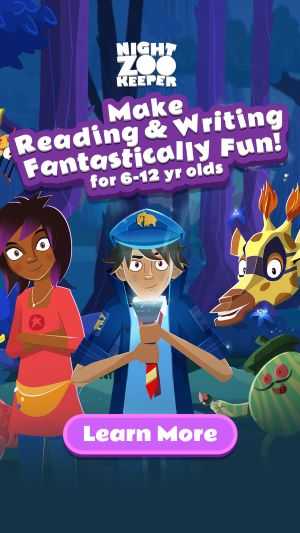Year 6 Writing
Discover Year 6 writing standards

Home > English > Writing > Year 6
Year 6 writing is all about demonstrating text complexity in original work. Learners at this level are expected to continue developing their English language skills, in order to articulate their thoughts effectively and showcase the writing skills they’ve acquired during their time in primary school. In Year 6, your child should write stronger arguments, more engaging stories, and present factual information with ease.
Similar to previous years, your child will continue to develop a strong understanding of the relationship between reading and writing, as they will now have to start analyzing information to determine the main points of a text in order to inform their writing.
Year 6 Writing Goals:
- I can write clear arguments and provide evidence to support my claims
- I can maintain a formal or informal tone throughout my writing
- I can write strong conclusions and story endings
- I can use linking words and phrases to connect ideas and paragraphs
- I can research and include facts in my reports
- I can use dialogue and vary the pace in my narratives
- I can use technology to produce and publish my writing
- I can clearly write in different styles and text types
- I can write with stamina for a sustained period of time
Year 6 students will predominantly focus on three key writing approaches:
The advice below will set up your Year 6 child for writing success!
Opinion Writing
Argument and opinion writing are very important styles of writing to master, as they allow learners to effectively voice their opinion and share different perspectives on a topic. Once children acquire these skills, they’ll be able to state a clear point of view and support it with reason and evidence.
Arguments should be written in a formal style. Understanding the difference between formal and informal writing, and when each should be used, is a skill children will learn in Year 6.
Being able to use linking words is an important skill your child should have at this primary education level. These words are the glue that stick claims and reasons, sentences and paragraphs, together. By Year 6, children are expected to use a variety of linking words effectively when writing arguments.
Here are a few for you to practice with your children:
- likewise, similarly, also, just as, like
- unlike, yet, despite, however, unlike
- firstly, finally, secondly, furthermore
When a child has crafted their argument by clearly stating their position, giving reasons, adding supporting details, and using linking words, they need to write a concluding statement. A concluding statement should wrap up the argument. It could summarise the main points from their argument, or rephrase their position, and it should end on a positive note.
Practice Tip
You can encourage your child to work on their opinion writing skills by introducing them to the Ninja Leaf Opinions lesson series on Night Zookeeper!

Informative Writing
When writing informative texts, there are a variety of different strategies that children can use depending on the topic and purpose. Using definitions and cause/effect are examples of these.
Here are some top tips on how to plan an informative piece of writing:
- Identify the main topic.
- Create a list or discuss important points to mention.
- Organize the points discussed by order of importance.
- Offer a factual and neutral point of view - offering statistics if needed. Topics should be developed with facts, definitions, details, and quotations.
- Be precise and clear on the points made - use a variety of linking words to clarify the relationship between ideas and to help transition between sentences and paragraphs.
Informative writing pieces should be closed with a concluding section that summarises the main points and leaves the reader thinking about the topic. This conclusion should offer recommendations on further reading for the audience, or leave the reader with questions relating to the future of the topic.
Practice Tip
Work on informative writing by asking your child to write a weekly grocery shopping list, asking them to name all of the essential items which are used on a regular basis.
Narrative Writing
Technique, description, and a well-sequenced plot are all expected features of Year 6 level narratives. When working on narrative writing, some aspects to focus on include a clear focus on the topic, good descriptions of characters, settings and other imagery relevant to the narrative. Narratives may also include techniques such as dialogue.
These narrative techniques are very useful, as they allow the plot to move forward and help to develop well-rounded characters.
Young writers should utilize figurative language (including similes, metaphors, and personification) and a wide vocabulary to include precise words and phrases in their short stories. Narrative writing relies heavily on providing a high level of detail with the aim to allow the reader to clearly visualise the actions, characters and settings present in the story. For example, adverbials of time and place are linking words we often use to sequence paragraphs. They show shifts in time and place that help readers follow the sequence of a narrative.
Concluding a piece of narrative writing may sometimes be challenging, as there are many techniques to choose from. We really encourage writers to try out different endings to their narrative pieces, including cliffhangers, unexpected plot twists or a classic happy ending!
Practice Tip
The narrative lesson series on our program is a great way to help your young writer to explore narrative techniques such as pacing, description, and dialogue to move the plot forward and develop characters and events.

How Night Zookeeper can help

Looking for a way to make writing fun for your child? Try our writing program for kids!
Night Zookeeper covers the full English National Curriculum and includes content that support Year 6 students with their English skills as they prepare for secondary school. Our gamified approach to teaching writing puts an educational twist on video games to help students to stay focused, engaged and entertained as they learn.
Our program hosts a wealth of award-winning Year 6 writing content, including challenges, writing assignments, interactive lesson series, creative writing prompts, printable resources, and much more!
With regular feedback provided to students, our writing program helps children to develop good habits in regards to drafting and redrafting their writing.
Sign up today to claim a 7-day free trial!
Related articles


Make Reading & Writing Fantastically Fun!
- Award-winning reading & writing program for kids
- Improves spelling, grammar, punctuation & vocabulary
- Over 1,000 different learning games and activities



